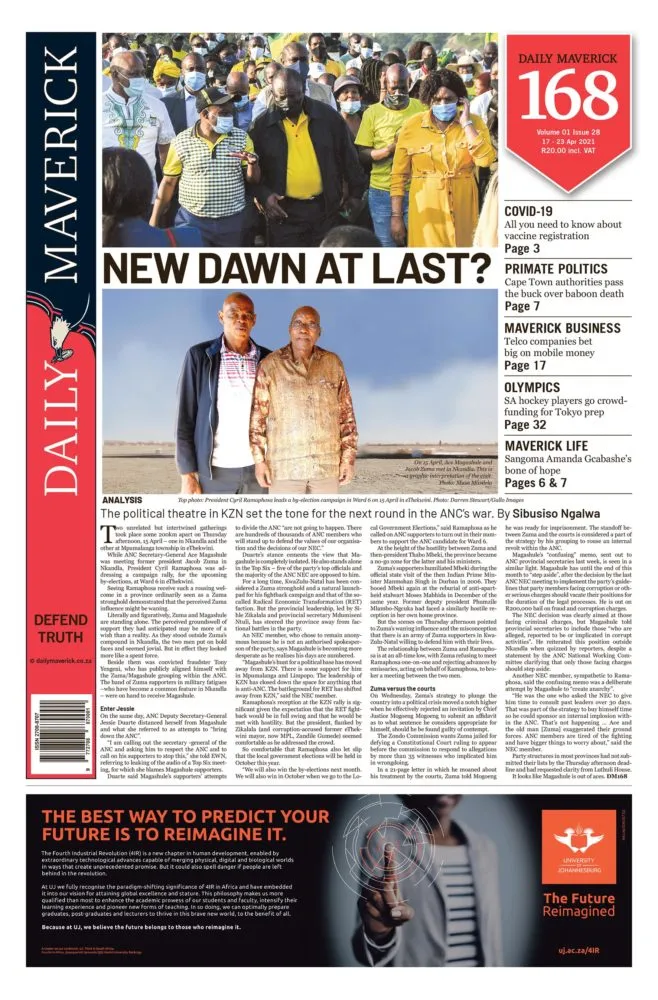First published in the Daily Maverick 168 weekly newspaper.
Shortly after the ANC nationalised mining rights in 1998 and launched the mining charter BEE process, the South African mining sector has been on a pretty dramatic decline. At first, everything seemed fine. In the early 2000s, the ANC and the industry cut a deal, and the global commodities boom meant legacy mining operations made a fortune.
But then the decline began and, really, it hasn’t stopped. Mining constituted about 17% of GDP in the 1990s and is now down to 9%.
In the meantime, international mining companies are joining the emigration process as fast as their little feet can carry them. The latest sector to be caught up is the thermal coal sector, that is, coal supplied to coal power stations. This has caused a triple headache for South Africa because it involves not only jobs and export earnings but also coal supply to Eskom.
The global movement against coal power has provided companies with an excuse to exit some unpopular assets. For South32, it’s a godsend because it means passing on to some lucky local beneficiary all the headaches that are a consequence of South Africa’s fabulously corrupt mining sector – all the labour issues and all of the problems associated with age-old Eskom supply contracts, as well as scoring some points with environmentalists.
Clear message
But exiting comes at a cost. How much, you might ask. Well, look closely at the nature of the sale agreement of South32’s thermal coal business to Seriti Resources and you get the message pretty clearly.
The company is being sold for R1. That’s always good. South32 is being admirably responsible and not just walking away. It’s also providing the ostensible buyer, Seriti in this case, with R10-billion in vendor financing. Then, because this wasn’t enough, it added in April this year, another $200-million (R3.4-billion) to fund rehabilitation, and $50-million (R850-million) to fund certain lossmaking mining areas.
There were a mass of South African companies that applied to be the buyer. I mean, who wouldn’t? And consequently, there are lots of sore losers out there. Throw in the truck-coal suppliers, who are now a big lobby group loosely associated with the Radical Economic Transformation faction of the ANC, and you have a real problem.
So this deal has been getting lots of bad press, particularly because there are a host of genuine underlying problems. The most political is the claim that the CEO of Seriti, Mike Teke, is a Cyril Ramaphosa supporter, and contributed to financing the president’s campaign to the tune of R600,000. The claim is that Teke is getting a sweet deal as payback. Seriti says this is nonsense: the contribution happened years ago and, by the standards of contributions at the time, it was pretty small. In any event, the buying consortium includes Sandile Zungu, who was at one point a big Zuma supporter.
The more telling criticism is that Seriti already bought most of Anglo American’s thermal coal assets two years ago and, should this South32 deal go through, it becomes a very heavyweight player in the industry. You can see that already because it’s party to negotiations with Eskom and Treasury to increase its coal price for the Duvha power station, which it claims is heavily underwater. Treasury is suspicious, but South32/Seriti claims it’s not looking for a bonsella; it just wants to mine at more-or-less breakeven.
But the rate of the underpayment by Eskom is eye-popping: Eskom was paying around 50% of the going rate for coal. South32 was presumably prepared to carry these losses because, on the other side, it has a favourable electricity supply contract from Eskom for its aluminium smelters in Richards Bay. But it’s much less easy for the new company to justify these losses, so it’s understandable they would want to fix it before the contract is finalised. The alternative is to close the mine, which would be crazy, since it supplies Duvha on a conveyor belt.
The loser here (surprise!) will be electricity users, who are going to pay more, a lot more, for the coal. One estimate of the additional cost is that it will come to R40-billion over 14 years. But if you run your mining sector badly, this is the price you – or, more precisely, we – pay. DM168
This story first appeared in our weekly Daily Maverick 168 newspaper which is available for free to Pick n Pay Smart Shoppers at these Pick n Pay stores.
Story corrected to reflect the mining rights nationalisation process began in 1998 not 1989. Apologies for the error.

















 Become an Insider
Become an Insider
As you sow, so shall you reap. I have had endless arguments with left-leaning idiots who think that mining companies are “raping us” and should all be nationalised. They have no idea of the capital investment needed. The ANC has made investment unprofitable. Ergo. There are better places to invest
The ANC is using the twisted agenda of BEE to create a class of “business” that is wholly dependant on Government (read ANC) benevolence . The Mpumalanga highveld is being left scarred and desolate. Wait until the Kusile mines start opencasting , and there is no rail link! keep on truckin’!